Contents
Rotary screw compressor filters must be regularly cleaned and maintained to ensure the compressor is working at peak performance. The filters protect the compressor from dust, dirt, and other debris damage the equipment. Proper maintenance of the filters helps keep your compressor running smoothly, and it will also extend the life of the equipment.
Types & Functions of compressor Filters
Types & Functions of compressor Filters
Pre-filter:
Removes large dust and other particles from entering the compressor.
Primary filter:
Filters smaller particles that escaped the pre-filter.
Secondary filter:
The final filtration stage captures fantastic airborne particles, like smoke or smog molecules (similar to high-end vacuum cleaners).
Controlling agents:
This is where oil is introduced into the air stream to control moisture, aid lubrication, and prevent rust or corrosion on equipment surfaces exposed to compressed air flow.
Discharge line filters are installed after the discharge valve (supply line) is located before any downstream equipment such as regulators & dryers; these water separators, coalescing filters, etc., help the compressor operate more efficiently by removing moisture from compressed air.
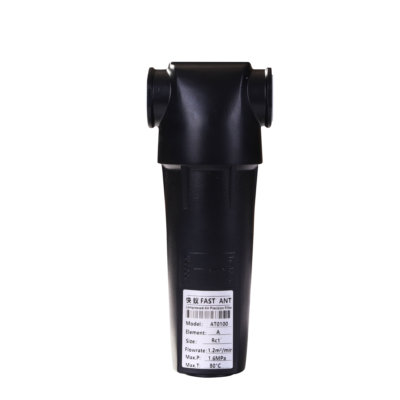
Why are Filters a vital part of Your Compressor?
Why are Filters a vital part of Your Compressor?
It is imperative to keep your compressor filters clean to maintain optimal performance. Dirty filters can cause the compressor to overheat, leading to costly repairs. In addition, dirty filters can also reduce the life of the compressor.
Cleaning Filters:
Air compressor filters can be cleaned by hand, or in some cases, and you can wash the filters. To clean the filters, first, remove them from the compressor. Next, soak them in kerosene or diesel for one hour and then scrub off any dirt with a stiff brush. Once all of the dirt is removed, rinse the filter under running water until all traces of kerosene/diesel are gone. Allow drying before replacing it with the compressor.
Replacing Filters:
As a general rule of thumb, you recommend that you replace your air compressor’s filters every six months. However, this does depend on how often you use your equipment and what types of contaminants are present where it will be used.
Filter maintenance:
- Clean your filters regularly with soap and water or an approved cleaner specific for this type of material; do not use abrasives like steel wool as they will scratch the surface of the element resulting in decreased efficiency and possible early failure
- Visually inspect filters for damage, such as tears or holes, and replace if necessary
- Replace filters when they are no longer able to remove the desired amount of debris or if they are damaged beyond repair
- Depending on your environment and the type of compressor you have, primary and secondary filters may need to be replaced more often than other filters; always consult your manufacturer’s recommendations for specific filter replacement schedules
- Filters should be cleaned whenever they appear dirty, even if dirt wipes off easily; they will still restrict airflow
- Never use compressed air to clean filters; the high velocity of the air stream can damage the filter media
- Keep your compressor’s inlet covered with a plastic or metal guard when it is not in use; this helps cut down on dust and other airborne particles from entering
- Most compressors today are equipped with automatic oilers that keep lubricating oil constantly coating the bearings, which reduces wear and tear on moving parts
- However, if you do not have an oiler on your compressor, manually add 3-5 drops of compressor oil into the appropriate container at least once per day
- Periodically check for signs of leakage around fittings, valves, and joints; if you see any leaks, tighten the fittings or replace the faulty part
When your compressor filters are dirty, you might experience the following problems while working:
Reduced airflow:
A dirty filter restricts airflow, which can cause your compressor to work harder than it should. This increases the risk of overheating, resulting in costly repairs.
Reduced tool life:
A dirty filter reduces the efficiency of tools and equipment, which means that they will not run as long before being replaced. Devices used most often need to be replaced more quickly if filters are not clean.
Increased energy costs:
Dirty filters reduce the amount of air your compressor can deliver. This makes it necessary for you to run your compressor for more extended periods, increasing the cost of operating it.
Bad Odor:
Dirty filters can also cause your compressor to emit a foul odor. This is caused by oils in the filter breaking down and becoming rancid.
How to maintain air compressor filters?
How to maintain air compressor filters?
When to Change Filters:
Most manufacturers recommend that filters be replaced every six months or sooner if they appear dirty. However, you can increase the life of your filters if you clean them regularly. It is a good idea to check them after each use and clean them regularly, depending on how often your compressor is used.
How Often To Replace Filters:
In most cases, it is recommended that you change the primary filter at least once per year or more frequently, if necessary. You should also check your secondary filter at least once per month and replace it as needed, depending on the conditions where your equipment will be used. If you do not have a secondary filter, installing one is a good idea.
Best Way to Clean Filter Manually:
The best way to clean filters is by using soap and water or an approved cleaner specific to this type of material. Do not use abrasives like steel wool as they will scratch the element’s surface, resulting in decreased efficiency and possible early failure. You should also visually inspect filters for damage, such as tears or holes, and replace them if necessary.
Protective Measures:
- As a safety precaution, always turn off your compressor and let it completely cool before cleaning or replacing filters.
- Never use compressed air to clean the filters as the velocity of the air stream can damage them.
- Always wear gloves when handling filters, as they may be dirty and contain oils and other contaminants. If you do get oil or dirt on your skin, wash it off with soap and water as soon as possible.
- Dispose of used filters responsibly. Never dump them on the ground or in household trash, as they can release harmful particles into the air when crushed or burned.
Machine maintenance is essential to the life of your equipment. Regularly cleaning or replacing filters provides many benefits that can help you increase productivity and make your compressor last longer. By following these simple guidelines, it is possible to keep costs down while improving safety and performance.


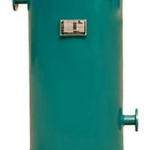
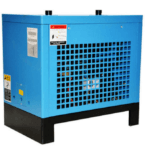
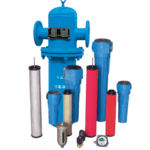



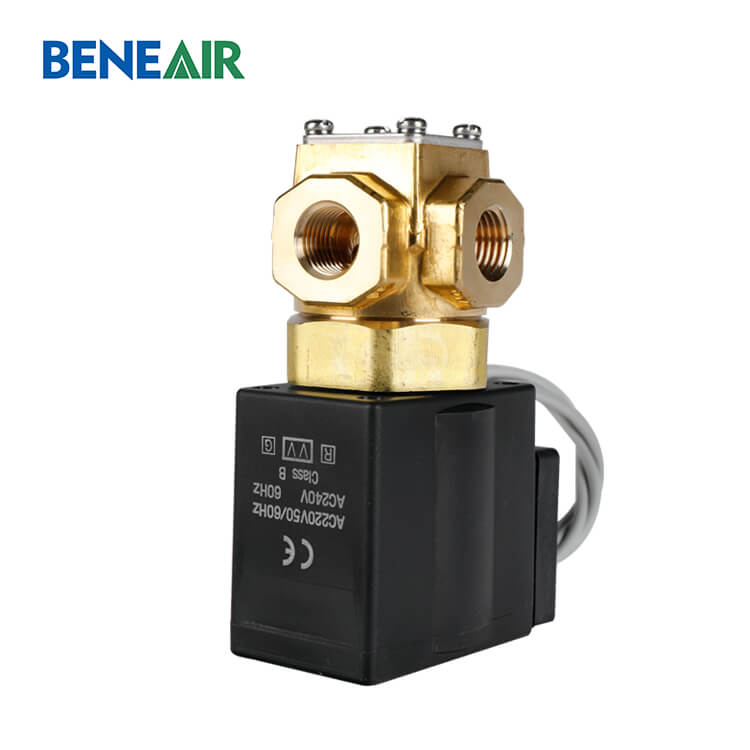





Leave A Comment